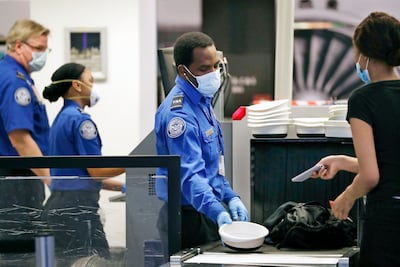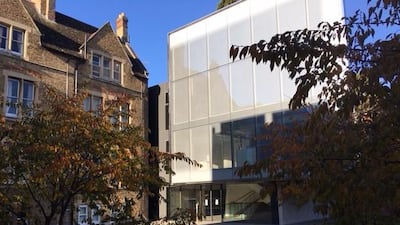US President Joe Biden has now declared the US withdrawal from Afghanistan and evacuation of at-risk individuals there an "extraordinary success". It marks, for his administration, the official ending of a conflict that the US had entered into as a direct result of the 9/11 attacks 20 years ago today. In truth, it is the claim itself that is extraordinary: nothing to do with America’s engagement with Afghanistan was particularly successful. But the bombastic assertion fits precisely into how we think about the "war on terror".
9/11 and its associated "war on terror" defined my entire adult life, and career to this point. I began my doctoral studies only days after the attacks, and for two decades, my professional life has been punctuated by milestones in the "war on terror", advising different governments in my native UK, as well as in the US and elsewhere.
As someone who put fundamental rights at the heart of any comprehensive security strategy, I note that my advice was often not taken. But on a personal level, 9/11 had an incredible impact on me, as a European Briton of English and Arab heritages.
I wish I could say that two decades on, we have learned a great deal for the better. But I can’t. We constantly take one step forward, and then two steps back.
When I first began my PhD, I remember a new colleague almost immediately asking me what I "thought" of 9/11. I was astounded; was the implication that I would have any different impression than they might, simply because I was of mixed race and Arab origin, while they were white? In retrospect, though, it was a befitting beginning to my academic career, where everything I studied became "securitised".

My work wasn’t supposed to be like this. I never thought my work would be of interest to any security establishment when I began it. I was interested in political theory and the governance of European religious diversity – but as my work engaged with Muslim communities, it was, inevitably, “securitised”. In the days following the July 7 bombings in London in 2005, with a new PhD diploma in hand, I was then asked by different parts of the UK government to advise on extremism. As an academic, I was reluctant – but as the nation reeled from being attacked, I was concerned that far more damaging advice might be given if I didn’t agree. I gave my advice – and still give advice – with the hope that, at the very least, I might minimise damage.
9/11 had meant the invasion and occupation of Afghanistan by Nato forces; and it had resulted in the invasion of Iraq, which brought things much closer to home for me. I spent a large part of my upbringing in the Gulf, with Iraqi classmates. The cost of the Saddam Hussein regime to them, the cost of the invasion and occupation to them – none of this was anything less than catastrophic.
This was another part of the "war on terror" that was brought home to me, which I was reminded about multiple times over the following two decades; how our foreign policy decisions had the most impact on populations far away from us, but we never centre their suffering in those decisions. When we abandoned Afghanistan, the "war on terror" cycle meant, yet again, we centred all of our angst in Washington. It is a self-absorbed story that, unfortunately, has been repeated many a time in the past two decades. That is an inbuilt feature, not a bug: the "war on terror" is most concerned with how discussions play out among elites in the corridors of power. It is not about how the impacts of that "war" are felt by the most vulnerable.
If 9/11 had never happened, I suspect I would still have engaged in researching religious minorities in the West, and politics in the wider Arab world, over the past 20 years. But I doubt I would have personally constantly been exposed to the "securitisation" of my own person. I’m the son of a white Englishman, and if I wanted to, I can "pass" for a southern European fairly easily. But the securitisation of our post-9/11 world has meant that I have been stopped and interrogated multiple times in train stations and airports, always "randomly". Ironically, on one occasion, a security officer took the opportunity to then have a lengthy discussion with me, as he learned what I did for a living, about the negatives of racial profiling – without the slightest bit of awareness.
I hope to have many years ahead of me in health, and many productive years in terms of my professional contributions. But a part of me is almost stoic about the reality that the securitisation of our discussions worldwide has morphed into a permanent fixture. What was "emergency" and "temporary" is now "normal" and "permanent" – unless, of course, an equally powerful move in the direction of restoring a healthier way of looking at the world is brought back. I am not altogether optimistic about that happening, though. If anything, the trend seems to be more, not less, securitisation of communities within the US and elsewhere; and a continual dehumanisation of peoples in parts of the world that bear the impact, day in and day out, of the "war on terror". In many ways, I am forced to ask: isn’t what the terrorists wanted us to do?


